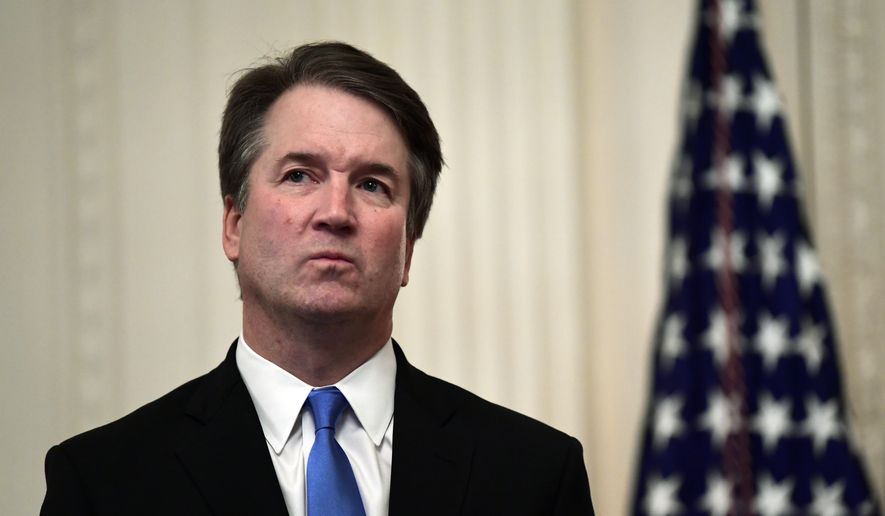Justice Brett M. Kavanaugh didn’t hold back during his first case on the Supreme Court Tuesday, lobbing a handful of questions at the lawyers who argued over criminal sentencing.
Coming out of a historically contentious, partisan confirmation process, court watchers predicted that Justice Kavanaugh might be reticent during his first few days on the bench, but he ended up asking both sides about the intricacies of what constitutes a violent felony for the purposes of increased sentences.
Outside the court, some protesters continued to jeer the judge’s installment, though they were far less vocal than the demonstrators over the past week — and none of them invaded the austere confines of the courtroom.
On hand were Justice Kavanaugh’s wife, daughters and parents, as well as retired Justice Anthony M. Kennedy, whose seat Justice Kavanaugh won in a 50-48 confirmation vote Saturday.
Senate Democrats seemed eager to turn the page after their defeat. Minority Leader Charles E. Schumer of New York breezed over the confirmation battle and focused instead on health care. But Republican leaders took another victory lap and urged voters to punish Democrats for their treatment of Justice Kavanaugh.
“Reason and deliberation triumphed over what was literally an attempt to sway the Senate using mob tactics,” said Majority Leader Mitch McConnell, Kentucky Republican.
At one point ahead of the confirmation vote Saturday, protesters pushed through a police line in an attempt to hold a sit-in on the Capitol’s east front steps, an area that has been off-limits for years.
At the high court Tuesday, police had fenced off the stairs leading to the court, preventing any protesters from charging and clawing at the front doors.
Inside, the day’s first case involved whether a man convicted of robbery in Florida in 1997 used enough physical force for it to be considered a violent felony under the Armed Career Criminal Act, which imposes elevated sentences on defendants with three prior felony convictions.
From his seat on the court’s wing, Justice Kavanaugh fired two questions at the convict’s attorney and three questions at the government’s attorney, attempting to suss out how the case compared with a previous battery case.
While his line of questioning remained mostly on legal precedent, the more senior judges were livelier. Justice Sonia Sotomayor pinched her neighbor, Justice Neil M. Gorsuch, as an example of what might constitute physical force during a hypothetical she posed.
Justice Samuel A. Alito Jr., who sits two seats over from Justice Kavanaugh, appeared skeptical about the convict’s claim. The justice said battery is considered any unwanted touching — not just physical force.
“Now, if we go beyond that … it would be necessary to quantify the degree of physical force that’s required, like how many pounds per square inch. I have no idea how you do that,” Justice Alito said.
The second case argued Tuesday also dealt with the Armed Career Criminal Act, specifically whether burglary of a mobile home constitutes a violent felony. Justice Kavanaugh asked nine questions during that hour.
Kristen Clarke, president of the Lawyers’ Committee for Civil Rights Under Law, said Justice Kavanaugh will remain a divisive and polarizing force.
“His confirmation was the closest in modern time, and there are grave questions about his ability to hear cases with the degree of impartiality needed to instill confidence in the public in the court’s work. We should expect to see increasing calls for recusal from parties who fear that the bias and hostility that Justice Kavanaugh exhibited during his confirmation hearing may impair his ability to fairly and evenly resolve cases,” Ms. Clarke said.
• Alex Swoyer can be reached at aswoyer@washingtontimes.com.




Please read our comment policy before commenting.